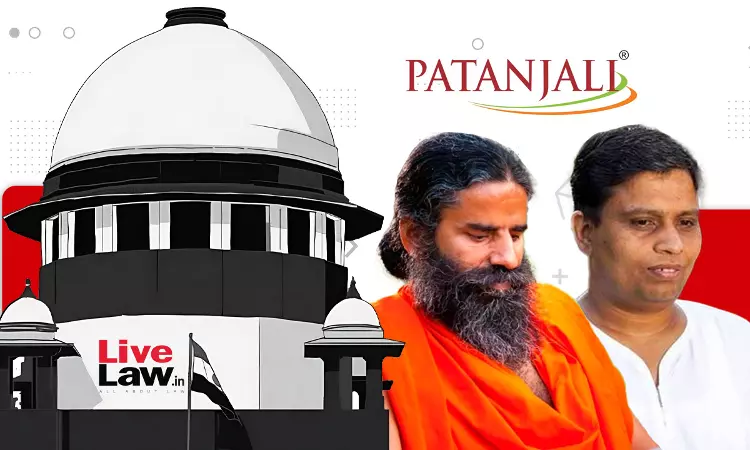The Supreme Court on Tuesday questioned yoga guru and entrepreneur Ramdev and Patanjali Managing Director Balkrishna for disobeying court orders prohibiting Patanjali Ayurveda from running misleading advertisements on health treatments and undermining other medical practices. A strict warning was given against. After offering a public apology to avoid contempt charges, the court noted that the two were “not naive enough” to simply make a mistake.
While the top court gave Ramdev and Balakrishna a week’s time to take appropriate steps “to exonerate themselves” and demonstrate their remorse, it spoke to the two directly, and told them of their innocence after violating the court’s order. Or the plea of negligence may not be immediately accepted. The order despite previous judicial warnings.
However, the court told him that it still had to take a decision on whether to accept his apology or not.
Justices Hima Kohli and Ahsanuddin Amanullah asked pointed questions when Ramdev and Balkrishna appeared personally to answer contempt of court charges arising out of a series of advertisements claiming that Patanjali products were linked to various Can cure diseases – a clear violation of earlier directions of the apex court and an undertaking given by Patanjali in this regard.
As the proceedings began, senior lawyer Mukul Rohatgi, representing the leaders of the Patanjali Ayurved empire, offered to issue a public apology, but the bench called the two for talks.
It started with Ramdev asking why he and Patanjali would stop any other form of medicine in a country that has a rich and diverse medical heritage dating back thousands of years, where multiple systems of medicine have been practiced for centuries. , The court spoke to Ramdev and Balkrishna in Hindi.
“Why would you say that any other system is not good?” it asked Ramdev, who began by expressing his “unqualified and unconditional apology” for his conduct that had angered the court.
Ramdev said he has never tried to discredit any other form of medicine, including modern medicine – often known as allopathy in India – and at a press conference, held in November last year Patanjali’s submission came a day after it assured the court against releasing any misleading advertisements containing controversial statements, aimed at bringing clinical evidence and real-life testimony to people’s attention.
“Whatever you do must be within the bounds of the law… You cannot defame or destroy other systems to promote your system. We will not allow this. You are before us because you have clearly shown contempt…There are incurable diseases, and no advertising is allowed in relation to them. Law is equal for everyone. And if you think there is a cure in your system, first prove it before the government panel,” the bench told him.
The courtroom was packed and Ramdev and Balakrishna, dressed in traditional saffron attire, listened attentively, occasionally nodding in approval. The proceedings were marked by a solemn tone as the judges underlined the seriousness of the contempt charges and the responsibility towards public health by Ramdev and Balakrishna.
“This country and its people have expectations from you. You should not have done all this… You cannot degrade allopathy. Do not defame any other system,” it said.

